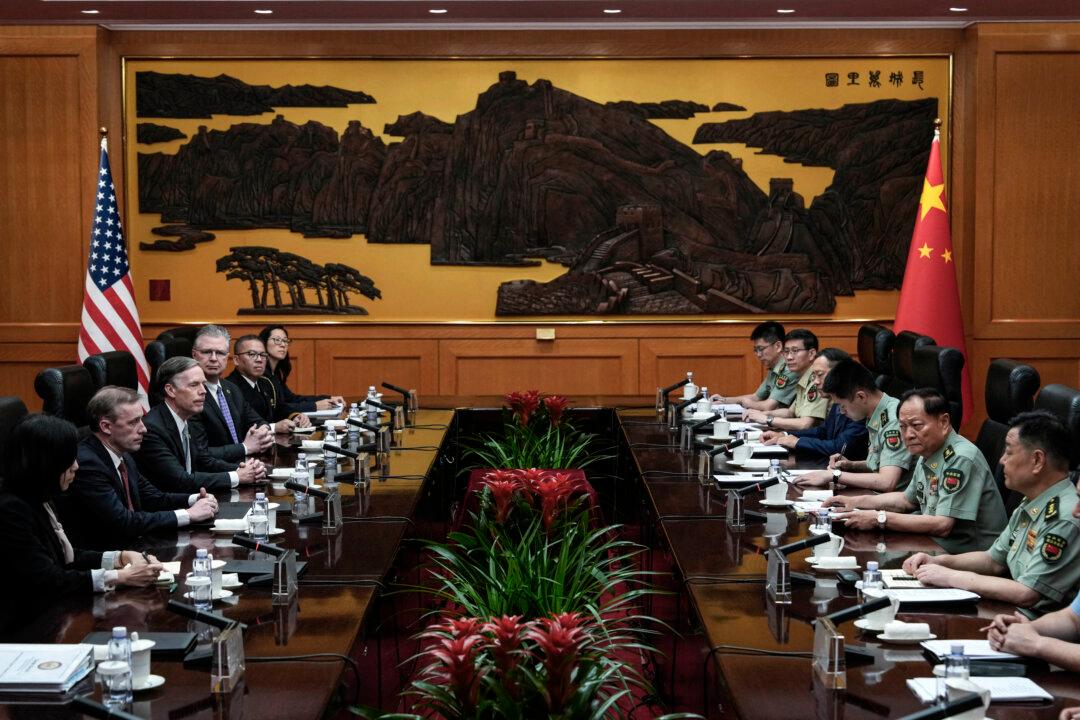U.S. national security adviser Jake Sullivan on Thursday met with a senior Chinese military official in a bid to manage tensions brewing between China and U.S. treaty allies in the region.
Sullivan met with General Zhang Youxia, vice chairman of the Central Military Commission (CMC), which is China’s top military body helmed by the Chinese Communist Party (CCP) leader Xi Jinping. According to a readout of the meeting from the White House, Sullivan emphasized that both nations “have a responsibility to prevent competition from veering into conflict or confrontation.”





